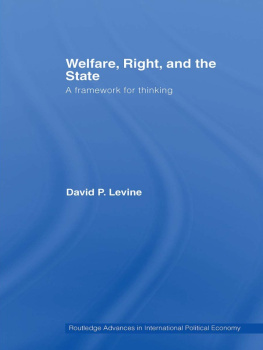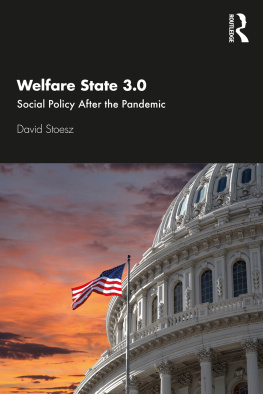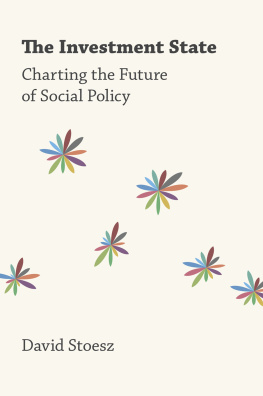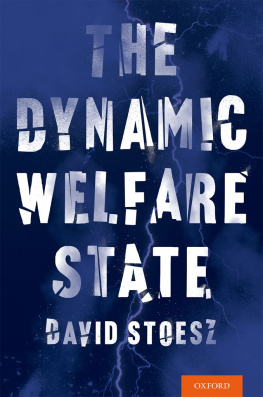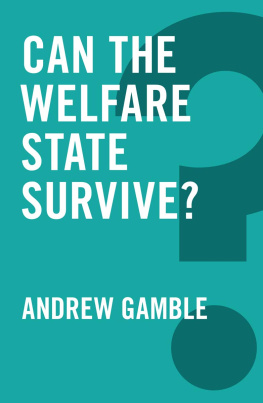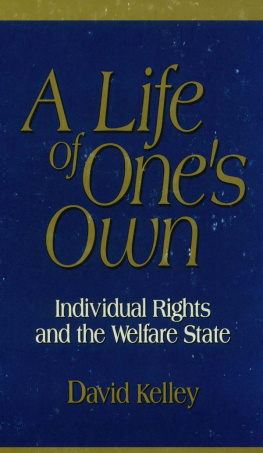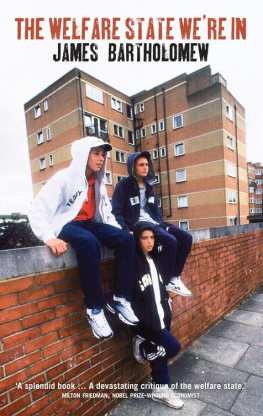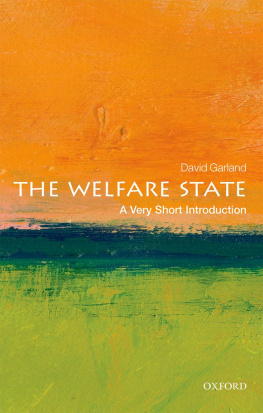David P. Levine - Welfare, Right and the State: A Framework for Thinking
Here you can read online David P. Levine - Welfare, Right and the State: A Framework for Thinking full text of the book (entire story) in english for free. Download pdf and epub, get meaning, cover and reviews about this ebook. year: 2007, publisher: Routledge, genre: Politics. Description of the work, (preface) as well as reviews are available. Best literature library LitArk.com created for fans of good reading and offers a wide selection of genres:
Romance novel
Science fiction
Adventure
Detective
Science
History
Home and family
Prose
Art
Politics
Computer
Non-fiction
Religion
Business
Children
Humor
Choose a favorite category and find really read worthwhile books. Enjoy immersion in the world of imagination, feel the emotions of the characters or learn something new for yourself, make an fascinating discovery.
- Book:Welfare, Right and the State: A Framework for Thinking
- Author:
- Publisher:Routledge
- Genre:
- Year:2007
- Rating:3 / 5
- Favourites:Add to favourites
- Your mark:
- 60
- 1
- 2
- 3
- 4
- 5
Welfare, Right and the State: A Framework for Thinking: summary, description and annotation
We offer to read an annotation, description, summary or preface (depends on what the author of the book "Welfare, Right and the State: A Framework for Thinking" wrote himself). If you haven't found the necessary information about the book — write in the comments, we will try to find it.
Welfare, Right and the State: A Framework for Thinking — read online for free the complete book (whole text) full work
Below is the text of the book, divided by pages. System saving the place of the last page read, allows you to conveniently read the book "Welfare, Right and the State: A Framework for Thinking" online for free, without having to search again every time where you left off. Put a bookmark, and you can go to the page where you finished reading at any time.
Font size:
Interval:
Bookmark:
Essays on cultural pluralism and political integration
Edited by Sverker Gustavssonand Leif Lewin
Co-publication with Nereniusand Santrus Publisher AB,Sweden
Studies in theory and intellectual history
Razeen Sally
Jeffrey Hart andAseem Prakash
Jeffrey Hart andAseem Prakash
A regulationist interpretation
Edited by Robert Boyer andToshio Yamada
Edited by Johannes DragsbaekSchmidt and Jacques Hersh
The architecture and extension of international trade recognition
Rorden Wilkinson
Assessing contours, correlates and concomitants of globalization
Indra de Soysa
Deregulation and global goverance
Barbara Emadi-Coffin
Tony Porter
Demanding results
John Kunkel
Towards hybrid capitalism
Henry Wai-chung Yeung
The construction of governance states
Graham Harrison
A framework for thinking
David P. Levine

by Routledge
2 Park Square, Milton Park, Abingdon, Oxon OX14 4RN
by Routledge
270 Madison Ave, New York, NY 10016
A catalogue record for this book is available from the British Library
A catalog record for this book has been requested
ISBN10: 0-203-94050-4 (ebk)
ISBN13: 978-0-203-94050-1 (ebk)
Font size:
Interval:
Bookmark:
Similar books «Welfare, Right and the State: A Framework for Thinking»
Look at similar books to Welfare, Right and the State: A Framework for Thinking. We have selected literature similar in name and meaning in the hope of providing readers with more options to find new, interesting, not yet read works.
Discussion, reviews of the book Welfare, Right and the State: A Framework for Thinking and just readers' own opinions. Leave your comments, write what you think about the work, its meaning or the main characters. Specify what exactly you liked and what you didn't like, and why you think so.

